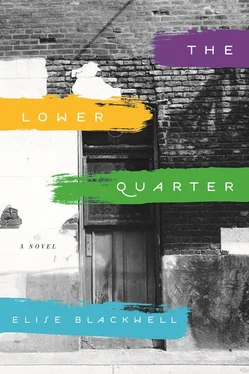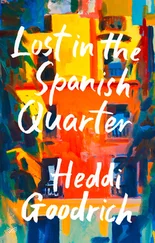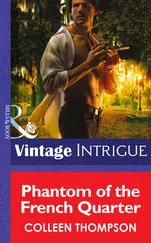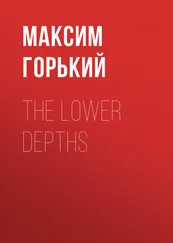Clay heard the protective tone and wanted to spit on the ground, wanted to tell him to stand in line.
“You’re not the first guy hanging around her door today.”
“She does run a business,” Clay said. “Any repeat customers?”
The bartender leaned on his forearms. “There’s one guy who comes around quite a bit, and it’s about damn time, I’d say. But that’s not who I saw coming out of there earlier — guy in a suit who looked like he shouldn’t be there. I was worried, to tell you the truth, but everything looked fine. Anyway, you can ask her yourself.”
Clay turned and saw Johanna’s silhouette in the window. He left his full beer and five dollars. The bartender’s parting words followed him: “I’ll be keeping an eye out.” He crossed the street without looking in either direction, though he vaguely listened for cars.
When Johanna turned slowly to face him, he experienced the physical desire he always did when he saw her, together with the shame he always felt when she returned his gaze. The stain of tears on her face deepened his shame.
“Are you hurt?”
She shook her head. “But they took something.”
“I can get your painting back,” he told her.
She leaned back on one of the tall worktables. Her fingers were stained white, and there was a smudge of white on her face. “That probably would not be good for me,” she said. “They would just come back for it. I would always be worried that they would come back.”
The street outside remained traffic-free and quiet, creating a strange sense of alteration through absence more subtle than any change caused by addition. Clay could hear Johanna’s stereo playing softly: violin over an orchestra. He couldn’t name the composer. Good music, like birds, was another thing she knew much more about than he did despite his education, which was both more extended and much, much more expensive than hers.
“What if they wouldn’t?” he said. “Come back, I mean. What if you knew that no one was looking for the painting at all anymore, and you could just have it?”
“If you can get the painting back, you can get me the name that I want.” Her look stabbed him. “You can give me his name.”
Clay nodded, though he knew he would never tell her the name of her living enemy — knowledge that could only ever be a threat to her. The means for her revenge were also the means to her self-destruction. This he understood better than she could. Just because you have been a victim of power doesn’t mean you understand how it works or know how to imitate its methods. Because she was an innocent, she had no idea that she was an innocent. “Maybe I will,” he said.
“There is one other thing I want to know, which is who your father hired to break into my home.”
Clay shook his head because he didn’t know.
“I want to know if it is a man named Elizam.” She looked at the ceiling for a second and then produced a last name.
“I can try to find out, but my guess is he used a cop.” Clay laughed. “It’s what he would do. Plus only a cop wears a suit in such a way that it’s the thing about him that people notice.”
“He wore a suit?” Johanna’s voice lifted slightly with the question, but she set her mouth quickly tight. “Either way, I never want to see you again, and I want you to tell your father to leave me alone.”
Though she followed it with the request about his father, Clay knew in the moment that the first part of her sentence was the important part. She’d been watching him, and he saw the decision arrive on her face before she said it. He also knew that its recent arrival made it no less solid or enduring. “Never.” He mouthed the word soundlessly and found it remarkably soft in his mouth. “Are you sure about that word?”
“You want to be punished. Your punishment is banishment.”
Johanna turned away from him and twisted the volume dial on the stereo, hitting him with the concerto like a blunt force, unable to hear the last thing he would ever say to her.
Marion
In the end, it was not a customer who told her that Henry was alive and well enough but Henry himself. “Calling to take you up on dinner,” he said, and the long night of thinking that he might be dead shortened into a single moment of relief.
When Marion asked him about the fire, her voice still precarious from the fright, he repeated what everyone was saying: “Terrible thing, terrible thing. But, no, not my crew at all, though I think I crashed in that same warehouse one night.”
She cordoned off her anger as irrational and allowed herself the pleasure of relief. Again she had a brother, perhaps a less-than-copacetic sibling, but it was at least a tether to someone, proof that she existed in relation to something else, that she had a history, a genealogy, a family of origin. “Sure,” she said.
She mentally combined the scant contents of her refrigerator and thin cabinet that held the rest of her food. She’d read a book once, a memoir of a formerly starving but now successful artist who’d once survived several days on flour and an onion by making a flour-and-water crust and baking it with a topping of caramelized onions. Delicious, he’d written of the makeshift tart, but she suspected he was lying about his hard times because he also seemed to be drinking a lot of wine on those same several days. Wine was never free, nor was the gas and electricity to run an oven, and poverty was never romantic and tasty.
Once in college she’d heard from an acquaintance about a cheap market run by an elderly woman in a sketchy neighborhood. After finding it, she’d eaten a horrible meal of oily canned mackerel and rice for three days. The memory of this meal — welcome as it had been at the time — raised her older, more rational anger at Henry, and she wished there was a shop nearby that sold canned mackerel so he could see how he liked it. But if he was straight edge now, he was probably vegan — a comical notion given that she’d never known him not to give in to an impulse or craving, culinary, pharmaceutical, or otherwise. She tried to remember how she’d felt about him when she’d thought he might be dead, which softened her a little.
In the end she sautéed garlic in olive oil and boiled spaghetti and thawed frozen peas and stirred it altogether. Henry ate appreciatively as they sat across from each other at her small Formica table. Dark bangs slanted across his forehead and partway over his eyes, and for a second she saw in him the boy he had been back when they were something like brother and sister, back before he’d discovered his large talent for taking drugs. Even as children, though, they had generally gone their separate ways, not connecting even enough to squabble.
“So that could have been you,” she said midway through dinner.
Henry smiled, his mouth closed around a mouthful of food. “I’m glad it wasn’t.”
Marion knew she was supposed to say that she was also glad, or something like that, but she just chewed her food and swallowed, taking small sips of water between bites.
It was while he was washing the few dishes that she realized she’d decided something. “You should stay here for a while,” she said.
He stopped, dried his hands, and faced her. “You don’t have much room, and I haven’t been a very good brother.”
“Just for a while, until it warms up,” she said, looking down and away. “All I have is the couch — I’m sure as hell not giving you the mattress — but you can crash here if you want. It’s not like I’m saying you were a good brother, just that you can put this roof over your head for a while. Maybe until it gets warm again. Let’s just see how it goes.”
He embraced her, and she loosened into it only a little as he whispered the two words thank and you, not as a single phrase but as two distinct words, thank and you , over and over.
Читать дальше












